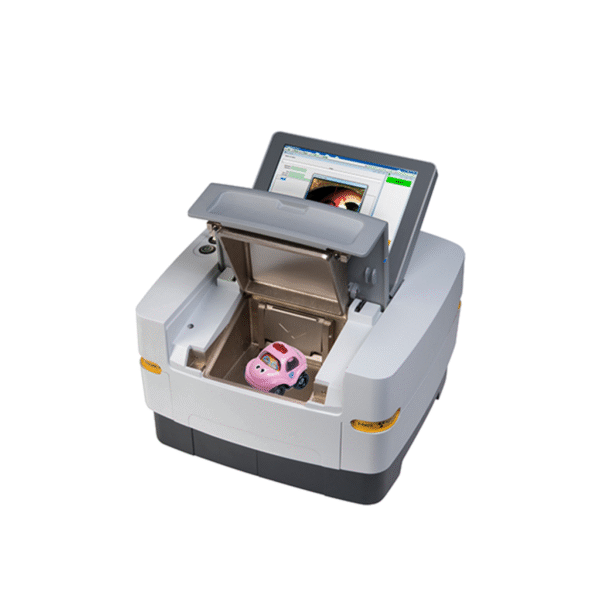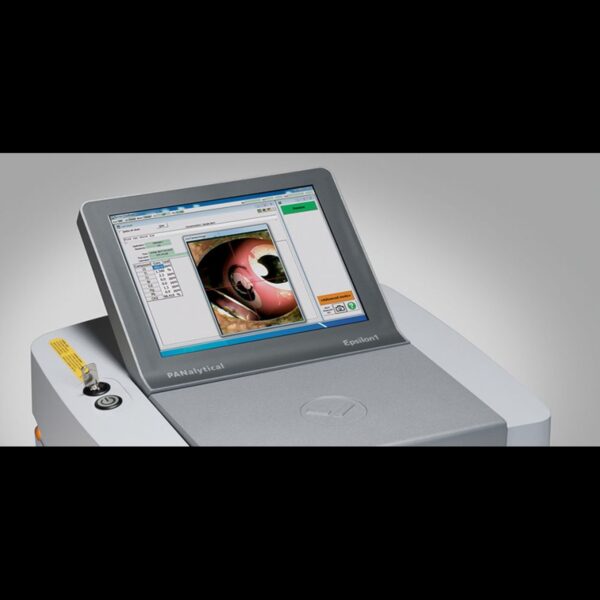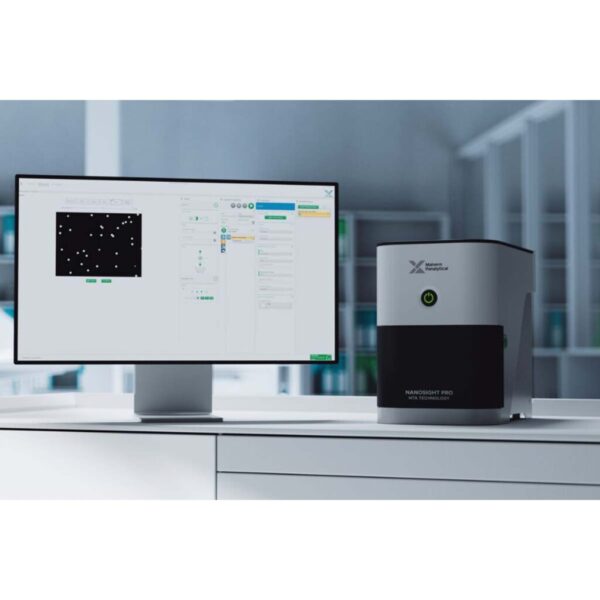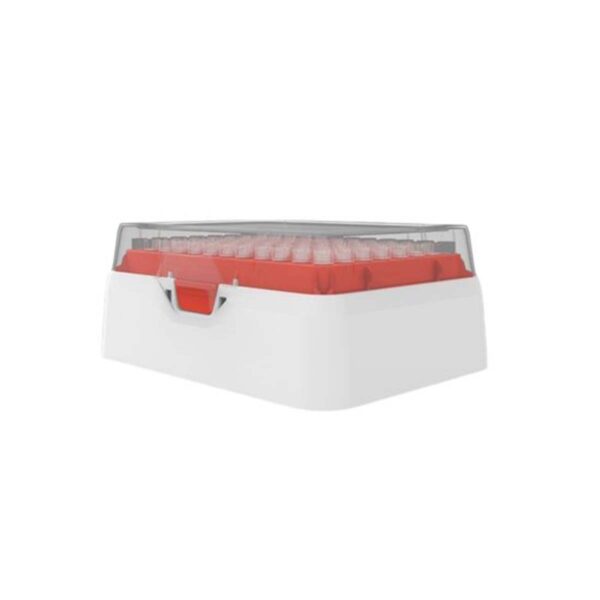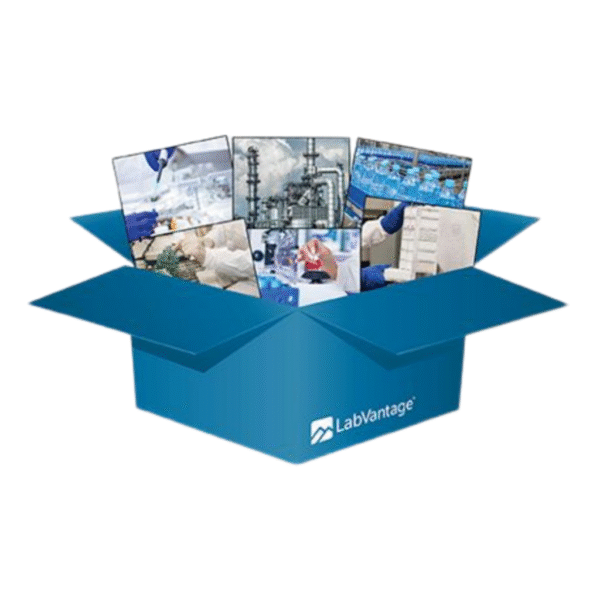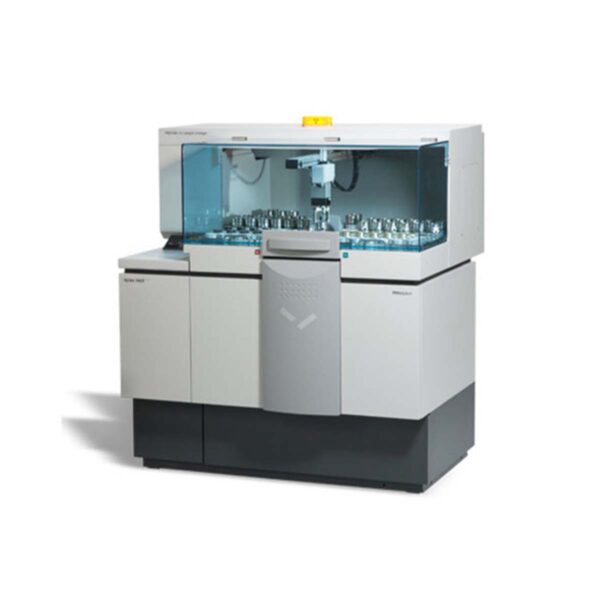Malvern Panalytical – Benchtop XRF Spectrometer – Epsilon 1 for Small Spot Analysis
Do you need elemental analysis of small objects or small inclusions in electronic appliances, toys, jewelry, rocks or finished products? Epsilon 1 for small spot analysis, a compact X-ray fluorescence spectrometer, is the ideal analytical solution for a flexible and precise spot-on analysis. The measuring procedure is easy and straightforward: Place any shaped sample directly in the spectrometer without the need of sample preparation. Position the requested detail above the small measuring spot with the help of a color camera, initiate the measurement and receive your results. Due to the self-contained design and small footprint, Epsilon 1 can be placed close to the sample location, making the instrument an ideal solution for any elemental analysis in production facilities, exploration sites, at the shop counter or even at crime sites for forensic investigation.
The performance of the spectrometer meets the standard test methods required by different directives and regulations in various industry markets, like RoHS-2 for electronics and CPSIA for many consumer goods.
DKSH is the exclusive distributor in Cambodia, Laos, Malaysia, Myanmar, Philippines, Thailand and Vietnam.
Technical Specifications
| Sample handling | X-ray tube | Detector | Software features |
|---|---|---|---|
| Any sample with maximum dimensions of 15 x 12 x 10 cm (WxDxH) | 15 Watt high-stability semi-ceramic side-window tube | High resolution, typically 135 eV | Omnian standardless analysis, ready for any sample |
| Sample positioning with color camera and digital projected crosshair | Max current 1.5 mA, to enable maximum sensitivity for traces | SDD10 detector with high count rate capacity | Automatic storage of camera picture |
| Dust and damage protection | Silver anode, ideal for most elements of the periodic system | Highly transparent thin beryllium window | Operator mode for easy operation |
| Max voltage of 50 kV, ideal for analysis of heavier elements | Advanced mode to set up dedicated applications |
Key Features
Epsilon 1 for Small Spot Analysis
- Non-destructive analysis
The measurements are carried out directly on the sample itself with little to no sample preparation. Since XRF is a non-destructive technique, the sample can also be measured subsequently by other analytical techniques, if required.
- Small analyzing spot
Small pieces or small inclusions in samples can easily be analyzed with a collimated X-ray beam. The spot size on the sample is typically 0.8 x 1.2 mm.
- Sample positioning
With the help of the color camera and crosshair in the picture, the user can manually position the sample on the analyzing spot of the instrument.
- Analysis report
After each analysis, a photograph of the analysis spot is stored on the built-in computer. With a single click an analysis report is generated that includes the photograph.
PANalytical Launches Epsilon 1 for Small Spot Analysis
PANalytical, world’s leading supplier of analytical X-ray instrumentation, software and expertise, announces the introduction of a new Epsilon 1 X-ray fluorescence (XRF) spectrometer. This new member of the Epsilon 1 family has been designed for small spot analysis, and is the most powerful benchtop spectrometer in its class. It provides a compact and cost-effective ‘out-of-the-box’ solution, ready for the analysis of small objects or small inclusions in rocks, electronic appliances, toys, jewelry or finished products.
The Next Epsilon 1
Key Industries
- Chemical
- Construction
- Mining & Minerals
- Oil & Gas
More Products
Malvern Panalytical was formed by the merger of Malvern Instruments Limited and PANalytical B.V. on 1st January 2017, has headquarters…
